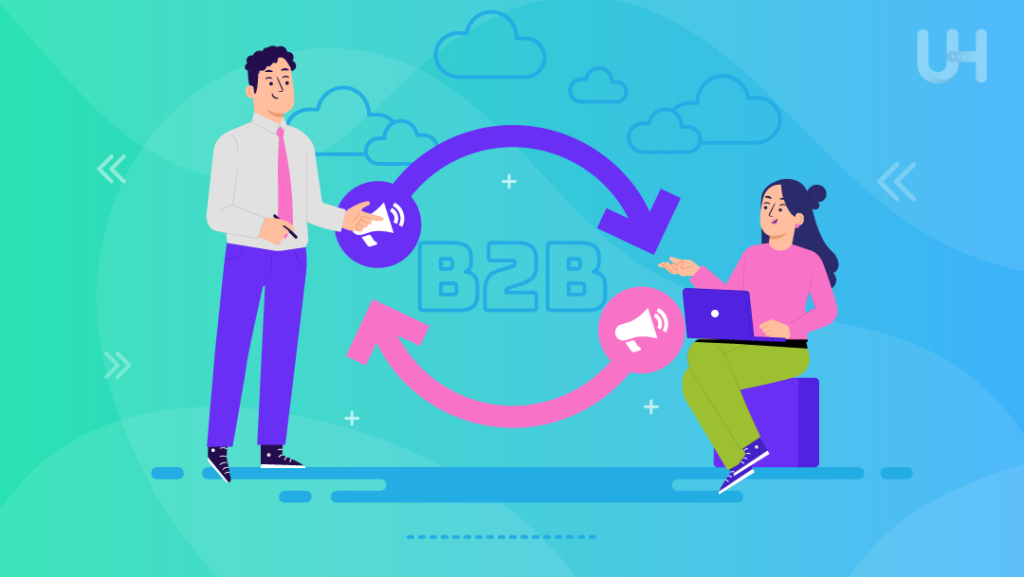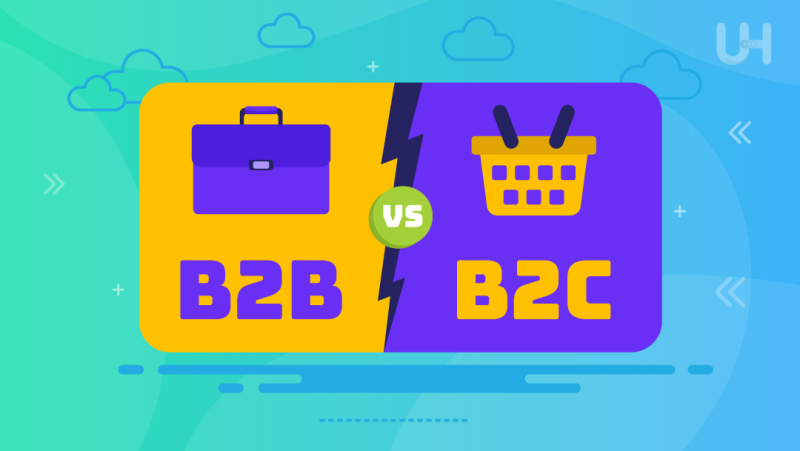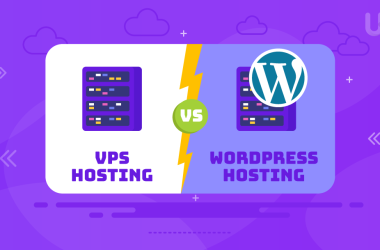When it comes to marketing, people have repeatedly made a difference between B2B vs B2C strategies. B2B stands for (Business-to-Business), and B2C stands for (Business-to-Consumer). While they find their application in selling products or services, they target different audiences with different needs and behaviors. This blog will detail some differences and similarities in how businesses work with B2C vs B2B marketing.
Through these distinctions, businesses can refine their approaches toward other companies to target them for their services, which include shared hosting and email hosting, or directly reach consumers through social network hosting and many more direct channels.
Introduction
In today’s competitive environment, implementation can only be complex if we understand how B2B vs B2C marketing differs. On the other hand, B2B marketing is responsible for transactions between businesses. It is related to rational decision-making and a long-term relationship.
In contrast, in B2C marketing, individual consumers are targeted. More often than not, it appeals to their emotions and immediate needs. This blog discusses some of these facets to illuminate strategic opportunities and considerations in contemporary marketing practices.
What Is B2B Marketing?

B2B marketing includes all strategies and tactics liquidity businesses use to create a market for their products or services; unlike B2C marketing, such marketing targets other companies rather than individual customers.
Business-to-business marketing deals with customers who are organizational buyers, builds relationships through fulfilling the unique needs of those customers, creates rational decision-making processes involving multiple stakeholders, and has a long sales cycle. Common channels in B2B marketing include industry events, content marketing, e-mail campaigns, and personalized sales efforts.
The success of B2B marketing is characterized by values in terms of reliability, efficiency, and effectiveness toward business goals—for example, shared hosting or email hosting solutions tailored to the organizational requirements for the end goal.
What Is B2C Marketing?
B2C marketing refers to a business’s strategies in selling products or services directly to individual consumers. This differs from B2B marketing, whose prime deal is transactions between two companies.
B2C marketing attempts to engage and arouse feelings along with the immediate requirements of individual buyers by primarily relying on building brand experiences, social media, influencer marketing, and targeted advertisement campaigns. B2C marketing campaigns focus on mass appeal and impulse purchasing and have much shorter decision-making cycles than B2B transactions.
Knowledge of consumer behavior and the ability to offer relevant experiences are central to effective B2C marketing in the quest to gain loyal customers; this would come through channels like social network hosting and other direct consumer interactions.
What Differences Make B2B & B2C Apart?
Their target audiences, decision-making processes, and strategies are usually appreciably different. B2B marketing usually deals with business transactions rather than individual consumers.
Getting High Bounce Rate With Marketing Campaigns?
Want visitors from marketing campaigns to last longer? With our service, you can own a server with quick light speed to impress your visitors with marketing campaigns!
That is to say, purchasing decisions will be rational, focusing on return on investment and value over time, as well as specific business needs such as shared hosting or email hosting solutions. In contrast, B2C marketing is directed toward individual consumers for lead nurturing. That makes it more emotional and oriented toward immediate desires.
The decision-making process in a B2C sale is fast and, at times, impulsive; it is guided more by brand perception, price sensitivity, and an emotional connection with the entity. The B2C marketing strategies are focused on mass appeal and are employed through social media.
What Similarities Do B2B And B2C Have?
While B2B and B2C marketing are very different, their primary objectives and underlying marketing tenets are always shared. Both seek a deep understanding of the targeted audiences’ engineering delivery satisfaction by being sensitive to their needs and preferences.
Effectively communicating value propositions lies at the heart of both B2B and B2C marketing—while the messaging and tone differ significantly, the principle remains. B2B and B2C marketers utilize online and offline marketing channels to reach their audiences.
Content marketing, email campaigns, and SEO are significant activities in both areas, yet they are tuned according to the behaviors and main decision-making processes of the targeted audience. Developing a solid brand identity and maintaining a strong reputation, necessary for both B2B and B2C relations, helps gain trust and loyalty with stakeholders and consumers.
How Can B2C and B2B Benefit?
Both B2C and B2B have varying advantages that target their desired audiences. B2C marketing makes an emotional appeal to result in impulse buying among individual customers through engaging storytelling, social media influence, and personalized customer experience.
It can quickly increase brand visibility and loyalty by hosting on platforms such as social networks for large audiences. On the other hand, B2B marketing focuses on relationship building, thought leadership, and providing quantifiable ROI to businesses.
It establishes credibility through thought leadership content, personalized sales strategies, and addressing specific business needs such as Shared Server or email hosting solutions.
When To Use B2C And B2B Marketing?
The choice between B2C and B2B marketing depends on the target audience and the campaign’s goals. Deploy B2C marketing when you target independent consumers whose purchasing decisions are driven by emotions, trends, and personal liking.
This is useful for products or services targeting the mass market, where quick brand awareness and consumer engagement are crucial, like hosting social networks. On the other hand, if your target includes businesses operating rationally on expectations of ROI, effectiveness, and long-term value, then use B2B marketing.
That would fit any product or service aimed at organizational interests, such as shared hosting or email hosting, where laying the foundation of credibility, building expertise, and nurturing a long-term relationship is imperative.
Which One Is Best For You?
The choice between B2B or B2C marketing depends on your target market audience and the products or services you are selling, whether it is retail marketing or traditional marketing. Choose B2C if you want to sell directly to consumers; engage them by manipulating their feelings so that they make quick purchasing decisions.
This works for products with broad appeal that rely on brand loyalty and engagement, such as social network hosting. Go for B2B marketing if your target markets are businesses or organizations driven by rational thinking, return on investment, and the need for long-term relationships.
This approach works well when you deal with a product or service designed to meet business needs, such as shared hosting or email hosting. You must display expertise and value and gain trust over time.
Future Of B2B and B2C Marketing
The future of B2B and B2C marketing lies in changing technology and consumer behaviors. With AI-driven analytics, B2B will personalize customer experiences and smooth decision-making processes.
Content marketing will retain its role as thought leadership and relationship cultivation—on subjects like shared hosting or email hosting solutions, for instance—for long periods. On the other hand, B2C marketing is trending toward more individualized and saturated experiences with the help of AR/VR for consumer engagement.
Social media and influencer marketing will still be critical in reaching and influencing consumer preference in social network hosting and other related regions involving consumers.
Conclusion
To formulate the appropriate set of strategies, we must establish a proper difference between B2B and B2C marketing in this modern, highly dynamic marketplace. B2B marketing, on the other hand, forms the basis of rational decision-making and long-term relationships among businesses.
In contrast, B2C marketing works more with emotional triggers and the immediate needs of consumers. Similarly, corporations use a variety of channels and fast-changing technologies to reach their target audiences effectively through hosting social networks, emails, or any other digital platform.
Businesses can achieve better marketing for brand loyalty and growth by embracing these differences and seeking commonalities to leverage in communication and strategy.
Check out UltaHost’s Email Server Hosting plans and set your marketing campaigns high. Our email server hosting programs are best for B2C marketing, ensuring you can provide the best experience for your customers and enhance the performance of your business.
FAQ
What is the main difference between B2B and B2C marketing?
B2B marketing targets business houses with a rational approach to decision-making and building long-term relationships. B2C marketing focuses on individual consumers, projecting emotion-bolt decisions based on immediate needs.
What are the differences between decision-making processes in B2B and B2C?
In contrast, B2B marketing involves rational decision-making with multiple stakeholders, while B2C marketing is relatively fast and impulsive, driven by personal preferences and emotions.
Are the same channels useful for B2B and B2C markets?
Yes, both can use the same channels, such as email campaigns, content marketing, and social media.
What are the advantages of B2C marketing?
B2C marketing is fast, emotive, and personalized—experiences that elevate brand visibility and customer loyalty.
When should one utilize B2B marketing in business?
A business should employ B2B marketing when the target is businesses celebrating long-term relationships and ROI. This approach goes very well with specific product types or services, such as shared or email hosting.








